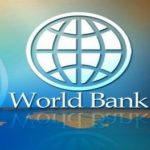 WASHINGTON, June 28, 2021 – The World Bank’s Board of Executive Directors today approved $800 million in financing for two programs in Pakistan—the Pakistan Program for Affordable and Clean Energy and the Second Securing Human Investments to Foster Transformation.
WASHINGTON, June 28, 2021 – The World Bank’s Board of Executive Directors today approved $800 million in financing for two programs in Pakistan—the Pakistan Program for Affordable and Clean Energy and the Second Securing Human Investments to Foster Transformation.
The $400 million Pakistan Program for Affordable and Clean Energy (PACE) focuses on measures to improve the financial viability of the power sector and support the country’s transition to low-carbon energy. PACE prioritizes actions needed to initiate critical power sector reforms focused on: reducing power generation costs; better targeting of subsidies and tariffs for consumers; and improving efficiencies in electricity distribution with the participation of the private sector. Additional medium-term reforms are under development, focusing on subsidies, competitiveness, and power sector sustainability. The goal is to reduce circular debt over the long-term.
“Power sector reforms are critical to resolving Pakistan’s fiscal challenges,” said Rikard Liden, World Bank Task Team Leader for the PACE program. “Decarbonizing the energy mix will reduce the dependence on fossil fuel imports and vulnerability to price fluctuations because of movement in exchange rates. PACE prioritizes action on such reforms, which must be sustained to address circular debt and set the power sector on a sustainable path.”
The $400 million Second Securing Human Investments to Foster Transformation program (SHIFT II) supports a federal structure to strengthen basic service delivery for human capital accumulation. The program will help improve health and education services, increase income-generation opportunities for the poor, and promote inclusive economic growth.
“Strengthening services that build human capital in a coordinated manner between provincial and federal authorities, along with improved targeting of social safety nets, will better support families to recover from the COVID-19 crisis, and pave the way for more robust crisis preparedness in the future,” said Tazeen Fasih, World Bank Task Team Leader for the SHIFT II program.
SHIFT II reforms increase budget reliability for sustainable financing of child immunization and quality primary healthcare programs, promote student attendance — especially for children who are out of school due to COVID-related closures — and support data-driven decision-making. The program supports reforms to encourage women’s participation in the economy by improving working conditions and empowering those in the informal sector. It supports the enhancement of national safety nets programs and better targeting to protect the most vulnerable, building resilience to shocks like the COVID-19 pandemic.
“The reforms underpinning PACE and SHIFT can contribute to facilitating sustainable investments and generate welfare gains for those most in need,” said Najy Benhassine, World Bank Country Director for Pakistan.
The World Bank Group’s COVID-19 Response
The World Bank Group, one of the largest sources of funding and knowledge for developing countries, is taking broad, fast action to help developing countries strengthen their pandemic response. The Bank Group is supporting public health interventions, working to ensure the flow of critical supplies and equipment, and helping the private sector continue to operate and sustain jobs. The Bank Group will be deploying up to $160 billion in financial support over 15 months to help more than 100 countries protect the poor and vulnerable, support businesses, and bolster economic recovery. This includes $50 billion of new IDA resources through grants and highly concessional loans.





